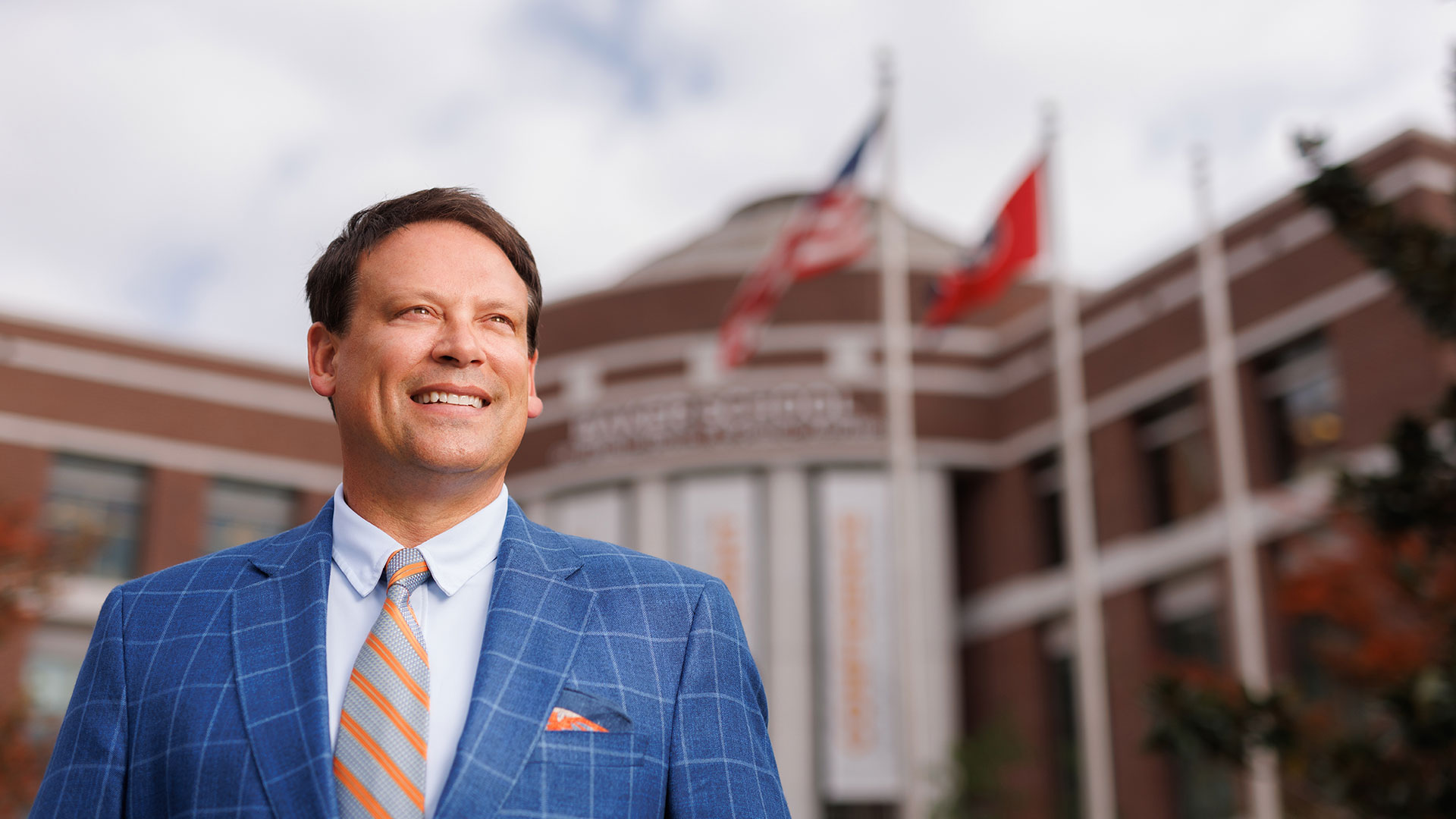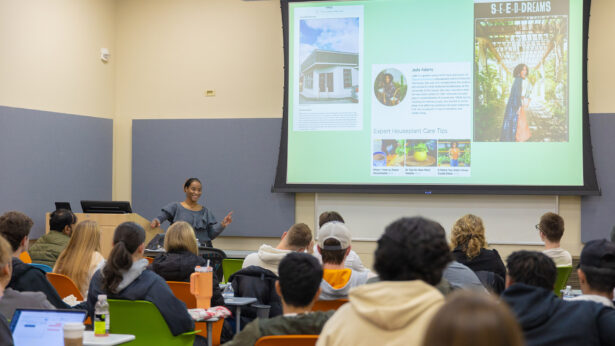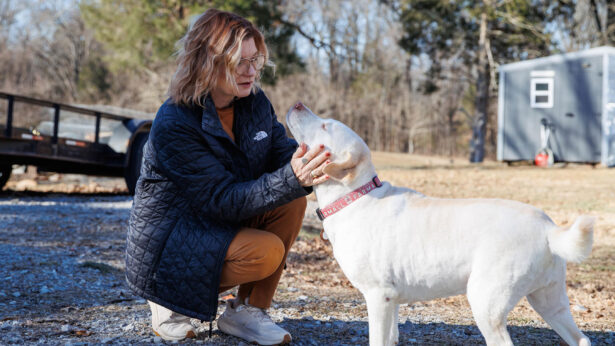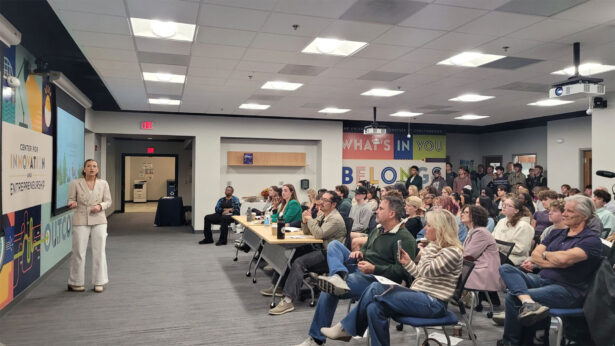Listen to this story
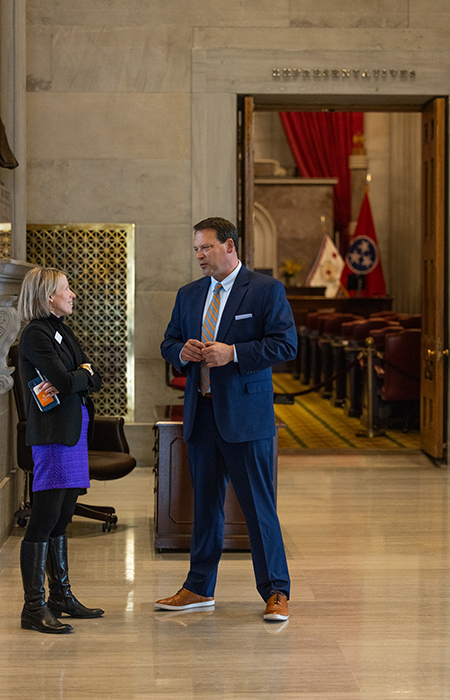
“Do you feel like you’ve given to your country as much as your country has given to you?”
That was the question posed to lauded Vol quarterback Heath Shuler not long after he retired from the National Football League in 1999.
And the answer to that question was no.
“I believe 27 out of the 88 people in my senior class in high school went into the military,” says Shuler, who came to UT to play football straight out of high school and declared for the NFL draft after his junior year. After five years of playing professional football, an injury forced him into retirement.
“So I felt like I had never given back to my country,” he says. “That’s why I decided to run for office.”
The Swain County, North Carolina, native ran as a Democrat in his home district, North Carolina’s 11th Congressional District.
“We were the number one race in the country that year, and we won quite substantially.”
Shuler’s victory helped hand the Democrats a majority in the U.S. House of Representatives.
He served three terms in Congress (2007-2013), caucusing with the Blue Dog Coalition, a group of moderate Democrats from conservative-leaning districts.
On the opening day of the 112th Congress in 2011, with his party in the minority, Shuler received 11 votes for speaker of the house—a role that traditionally belongs to the party in power.
“I’ve been too much part of a team to realize it’s not about individuals.”
—HEATH SHULER
However, above all else, Shuler sought to help the American people and maintain his integrity.
Upon leaving office, his voting record proved his bipartisanship—Shuler voted with Democrats 50 percent of the time and with Republicans the other 50 percent.
“It was about us and how we as a community could work together,” he says. “I’ve been too much part of a team to realize it’s not about individuals.”
Growing up, Shuler says the values of service to the public and community were modeled for him by his parents, Margie and Joe Benny Shuler, who volunteered with the Swain County Youth Association and helped their community in other not-so-public ways.
As a mail carrier in the rural community near the Tennessee border, Joe Benny Shuler often went the extra mile, checking in on the elderly and shut-ins—delivering their mail and sometimes bringing them groceries in a cooler in the back of his mail truck.
Joe Benny Shuler always took Heath and his brother Benjie with him to vote, saying it was important that everyone exercise their right to vote.
“People have shed a lot of blood for the right to vote, and he felt that we should always be doing it,” Shuler says.
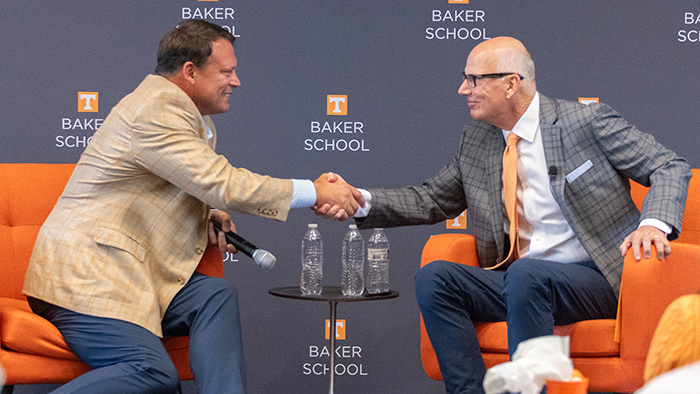
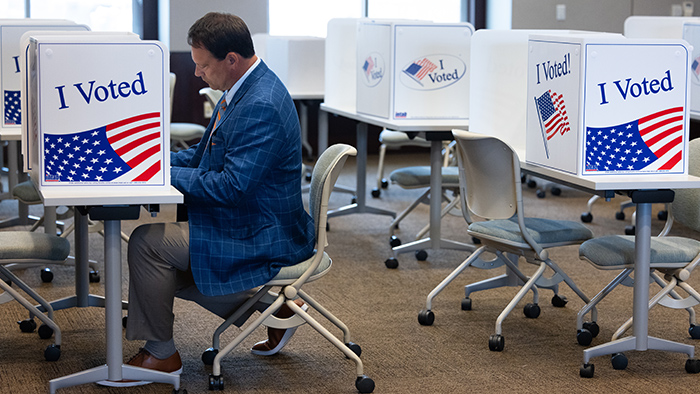
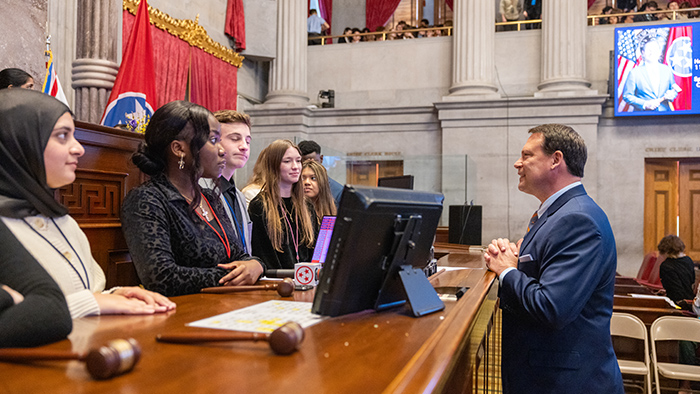
CLICK TO EXPAND IMAGES
In late October, Heath Shuler and his wife, Nikol, stood in line with their two children, Navy, a redshirt senior and quarterback, and Island, a sophomore on UT’s dance team, to vote early at the Baker School of Public Policy and Public Affairs.
Since moving back to Knoxville two-and-a-half years ago, Shuler continues to run his business consulting firm and is a guest speaker for various organizations, but he’s also been of service to his university and the Baker School.
“Heath went into public service to help others achieve their dreams,” says Marianne Wanamaker, dean of the Baker School. “He worked across the proverbial aisle to develop the best policy solutions for the American people, often putting policy ahead of party.”
Wanamaker says the school is fortunate to have a champion like Shuler, who has supported its mission in every possible way.”
“Heath is a model for the public problem-solver we aspire to develop at the Baker School,” she says.
Shuler got to know Wanamaker through speaking engagements at the school, talking to classes about his time in Congress and the importance of civic engagement and being open to alternative points of view—foundational tenets of the school and the political career of its eponym, former U.S. Sen. Howard Baker Jr. (’49).
The Baker School’s goal is to educate the next generation of public servants grounded in Baker’s legacy who are prepared to work with others to be pragmatic public problem solvers.
“Heath is a model for the public problem-solver we aspire to develop at the Baker School.”
—MARIANNE WANAMAKER
And that is something Wanamaker and Shuler say is needed in the country today.
“Howard Baker believed public service was among the highest callings in society. Whether serving in an elected office or working in policy, public servants have an enormous impact on others,” Wanamaker says.
When Shuler speaks with Baker School students, he rarely talks about the two major political parties.
“That’s part of the problem of where we are today,” he says. “I think it’s more important to be able to debate issues and agree to disagree—but do it with respect and to maintain your character and the character of the office itself.”
Shuler points to the Baker School’s podcast You Might Be Right and the respectful debates between former Democratic Gov. Phil Bredesen and former Republican Gov. Bill Haslam.
“I look back, and I always tried to conduct myself in that way. And hopefully that pays off, that someone is watching, and when they see you, they, too, start conducting themselves in the manner it should be done.”
Giving Back
Though the Baker School didn’t exist when Shuler was a student at UT, he did learn about the statesman’s legacy.
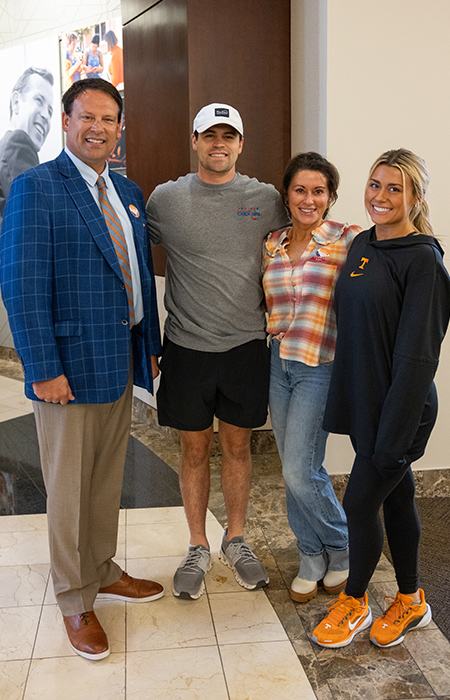
Shuler was drafted into the NFL after his junior year of college, but he made it a point to come back to UT and finish his degree when he retired.
Through the course of finishing his psychology degree, Shuler had the opportunity to take a political science class from Professor Michael Fitzgerald. In the class, he learned about Baker’s career and how he rose to be the chief of staff for former President Ronald Reagan.
After serving in the Navy during World War II and earning his law degree at UT in 1949, Baker jumped into politics, losing his first race but winning a 1966 U.S. Senate race. He served in Senate majority and minority leadership positions before becoming chief of staff. He was known as the Great Conciliator for his ability to negotiate compromises while modeling civility.
“It’s impressive the way he served and gave back to his country and his community,” Shuler says.
This fall, Shuler was one of six notable Tennesseans to pledge $500,000 each to endow four-year undergraduate scholarships at the Baker School.
The $3 million in endowed gifts will support six scholarships named for Shuler and Nikol Shuler, former Vice President Al Gore, former Gov. Lamar Alexander, Natalie Haslam, Jim Haslam, and former Tennessee Sen. Bill Powers and his wife, Fran.
“Strengthening civic health and restoring faith in our institutions is a critical part of our programming, curriculum and outreach at the Baker School,” Wanamaker says. “The significant investment to create these endowed scholarships will ensure the state’s flagship land-grant university continues to produce leaders who are capable of navigating tomorrow’s challenges.”
Outside of his work at the Baker School, the Department of Psychology and Tennessee athletics, Shuler is enjoying being a proud father.
He remembers a special moment in 2023, standing on Shields-Watkins field at a football game and being able to see his son, Navy, suited up in his No. 21 jersey and his daughter, Island, with the dance team on the sidelines.
“One of the greatest things about moving back to Knoxville was being able to re-engage with the university,” Shuler says. “If it weren’t for this university, the education, the people, I don’t think I would even have been close to accomplishing the things that I have in my life.”
